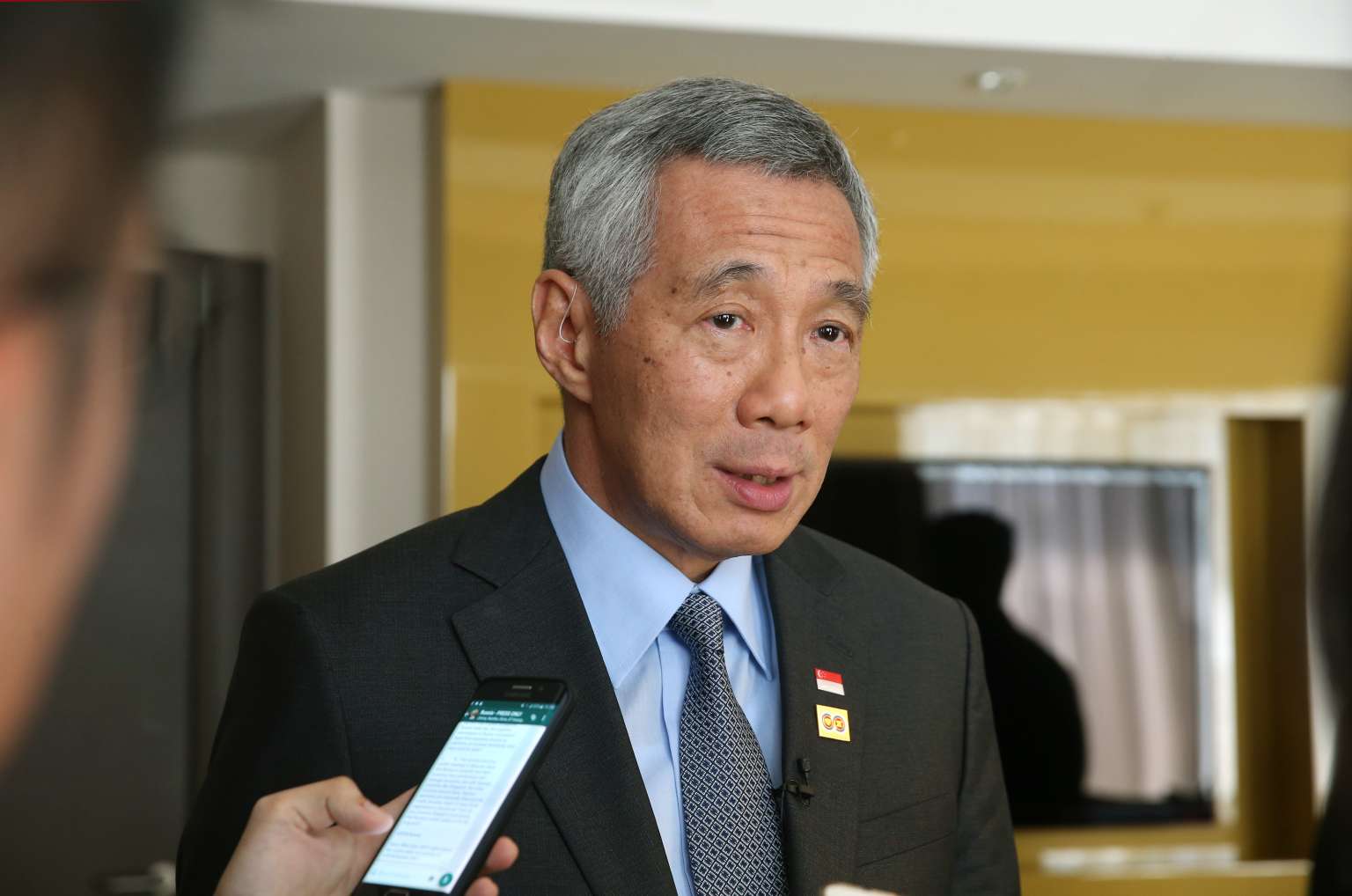PM Lee: Room for greater cooperation between Singapore and Russia in many areas
Sign up now: Get ST's newsletters delivered to your inbox

PM Lee is positive about Russia's business potential, saying many opportunities exist for Singapore companies.
ST PHOTO: SEAH KWANG PENG
Follow topic:
SOCHI - Prime Minister Lee Hsien Loong is cautiously optimistic that a free trade agreement between Singapore and the Eurasian Economic Union (EAEU) can be completed in the next two years.
He is also positive about Russia's business potential, saying many opportunities exist for Singapore companies.
These can be found in Moscow as it redevelops and upgrades the city, transforming outdated industrial estates into modern business parks, cultural centres or education centres.
The changes, in turn, create opportunities in urban masterplanning and transport.
But to pursue them, businesses need to invest time and energy to understand the country, how its systems operate and how best to fit in, Mr Lee told Singapore reporters in an interview on Friday, at the end of his four-day working visit to Russia.
In the short term, Russia faces challenges such as shrinking growth, low energy prices and the impact of Western sanctions, Mr Lee noted. But for the long term, it is "the place we ought to be", he said.
"Russia is a country with a long history, with deep roots and powerful science and technology capabilities, determined to be an influence in the world - somebody we can cooperate with in many areas," he said.
"Our trade with them has been growing, still modest but growing quite rapidly over the last decade. We co-operate with them in science and technology, education and culture. Even our investments back and forth have increased noticeably over the years."
"It is an account which we would like to develop and grow," said Mr Lee.
On its part, Russia has shown a new keenness in building economic ties with Asean countries like Singapore.
At the Asean-Russia summit on Friday to commemorate their 20 years of dialogue, President Vladimir Putin stressed to Asean leaders that his country wants stronger business links with the regional grouping.
He presented to them a roadmap with 57 projects to build technology and innovation alliances, offered Russian assistance for any development initiative in Asean, and invited Asean businesses to take part in priority development programmes.
He also highlighted the potential of the EAEU, which has a market of 180 million people and a combined gross domestic product of US$4.2 trillion (S$5.8 trillion), and was supportive of the proposed EAEU-Singapore free trade agreement.
"We have been working to create the most attractive conditions for doing business - cutting red tape, lowering the tax burden and monitoring the investment climate in Russia's constituent entities," said Mr Putin.
In PM Lee's view, however, companies have to be in Russia for the long haul to see success. They need to spend the time to understand how Russian business networks are linked up, how government decisions are made, and what their principal considerations and objectives are in order to fit in, he added.
"If you make a quick trip in-and-out, you meet some people and you shake hands, drink some vodka, maybe that's helpful, but that will not cause you to have a deep understanding and be able to have your company sink roots and grow vibrantly," he said.
But he stressed this does not mean only companies with large resources can succeed in Russia. PM Lee cited Educare, a co-op set up by the Singapore Teachers' Union, which has had good demand for its services to modernise the teaching pedagogy of Russian schools.
"They have a very established project with the Tatarstan government and they're looking at opportunities elsewhere," he said.
"It's not a huge company; if they can do it, so can other companies," he added.
Asked if Russia's enthusiasm to boost links with faraway countries like Singapore can be sustained, Mr Lee said the Asean-Russia summit and Mr Putin's remarks indicate "a desire to take it another step forward".
Even when circumstances change, the urgency may lessen but "you already have something valuable there, and you will look at it with a different perspective".
Likening it to worker training and upgrading in Singapore, he said: "When the economy picks up over time, your bonuses are up, employers take their eyes off the ball and workers also say, well, maybe after I've finished my overtime, after I've gone on leave, then maybe we can think about (upgrading).
"It's natural, but it doesn't mean we can't make progress," he added.
Mr Lee also said that signing an EAEU-Singapore FTA by 2018 - the 50th anniversary of diplomatic relations with Russia - is possible, as Singapore had negotiated other FTAs in two years. The EAEU has also signed an FTA with Vietnam.
"I made the pitch here in Russia to my host, to Mr Putin as well as to Mr Medvedev, and Mr Putin expressed support and talked about it," Mr Lee said, noting that negotiations can begin once the five countries in the EAEU agree to conduct a feasibility study.
"If there's a will, it can be done," he said.

